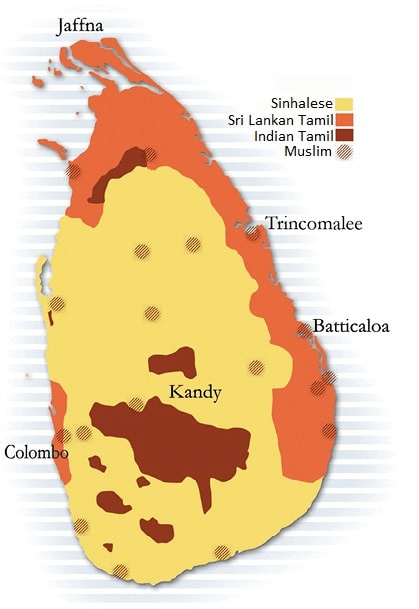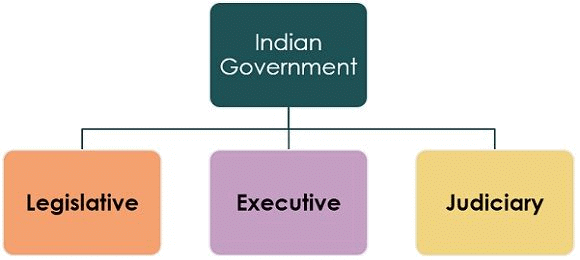Class 10 Civics Chapter 1 Notes - Power sharing
| Table of contents |

|
| Introduction |

|
| Power-sharing in Belgium and Sri Lanka |

|
| Majoritarianism in Sri Lanka |

|
| Accommodation in Belgium |

|
| Why power sharing is desirable? |

|
Introduction
An effective sharing of power among the three branches—legislature, executive, and judiciary—is essential for a well-functioning democracy. Power-sharing is crucial for democracy as it helps to keep the country united by acknowledging the feelings and interests of various communities and regions.
Power-sharing in Belgium and Sri Lanka
Belgium
- Complex ethnic mix - 59% in the Flemish region (Dutch language), 40% in Wallonia region (French language), and 1% German.
- In Brussels, 80% speak French while 20% speak Dutch.
- The French-speaking community was historically wealthier and more influential, causing tensions with the Dutch-speaking community during the 1950s and 1960s.
- Power-sharing arrangements helped prevent conflict between the two main communities and avoided a potential division of the country based on language.
Sri Lanka

- Sri Lanka's population is diverse—74% Sinhala-speaking and 18% Tamil-speaking.
- Most Sinhala-speaking people are Buddhist, while Tamil speakers are typically Hindus or Muslims.
- Christians make up 7% of the population.
Majoritarianism in Sri Lanka
The circumstances in Sri Lanka and Belgium differ regarding how they have handled majoritarianism and its effects.
Sri Lanka became independent in 1948. Leaders from the Sinhala community aimed to gain control over the government due to their majority status. Consequently, the elected government implemented several majoritarian policies to ensure Sinhala dominance.
Sri Lanka
- Sinhala's majority in the government and the introduction of majoritarian policies to reinforce their control
- 1956 Act - declared Sinhala as the sole official language
- Implementation of preferential policies
- Efforts to safeguard and promote Buddhism
- Result: Distrust between the communities escalated into significant conflict, culminating in a Civil War. This led to a sense of alienation among Sri Lankan Tamils, denial of equal rights, strained relationships, and struggles for regional autonomy.
- Severe setback to the social, cultural, and economic fabric of the nation
- The civil war caused a profound setback to the nation’s social, cultural, and economic life, concluding in 2009.
Accommodation in Belgium
Policy of accommodation -
- An equal number of Dutch and French-speaking ministers in central government.
- The State Governments are independent of the Central Government.
- This is an example of community government in Belgium.
- Brussels has a separate government, ensuring equal representation for both communities.
- Belgium has been successful in preventing conflicts between its two main communities and avoiding a potential division based on language.
- Brussels was selected as the headquarters for this arrangement.
Of the country's population, 59 per cent live in the Flemish region and speak Dutch. Another 40 per cent reside in the Wallonia region and speak French. The remaining one per cent of Belgians speak German.
Why power sharing is desirable?
Two reasons - prudential and moral reasons
- Prudential reason to reduce conflicts between social groups. It ensures the stability of political order. It prevents unfair use of authority by the majority and thus helps in the integration of the country.
- Moral reasons - Power sharing is the essence or the spirit of democracy and has better outcomes. A legitimate government is one in which the citizens have a stake in the functioning of the government through participation.
Forms of power-sharing
- Power is shared among different branches of government, which refers to a horizontal distribution of power, ensuring a balance among various institutions. For example, in India.
- Power is shared between different levels of government, such as central and state authorities.
- Power is shared among various social groups, including religious and linguistic communities, exemplified by community government in Belgium. The French-speaking community accepted equal representation in Brussels because the Dutch-speaking community agreed to equal representation in the national parliament.

|
66 videos|632 docs|79 tests
|
FAQs on Class 10 Civics Chapter 1 Notes - Power sharing
| 1. What is power-sharing in the context of political systems? |  |
| 2. How does power-sharing work in Belgium and Sri Lanka? |  |
| 3. What is majoritarianism and how does it relate to power-sharing? |  |
| 4. How does Belgium accommodate power-sharing between linguistic and regional groups? |  |
| 5. Why is power-sharing desirable in a political system? |  |





















